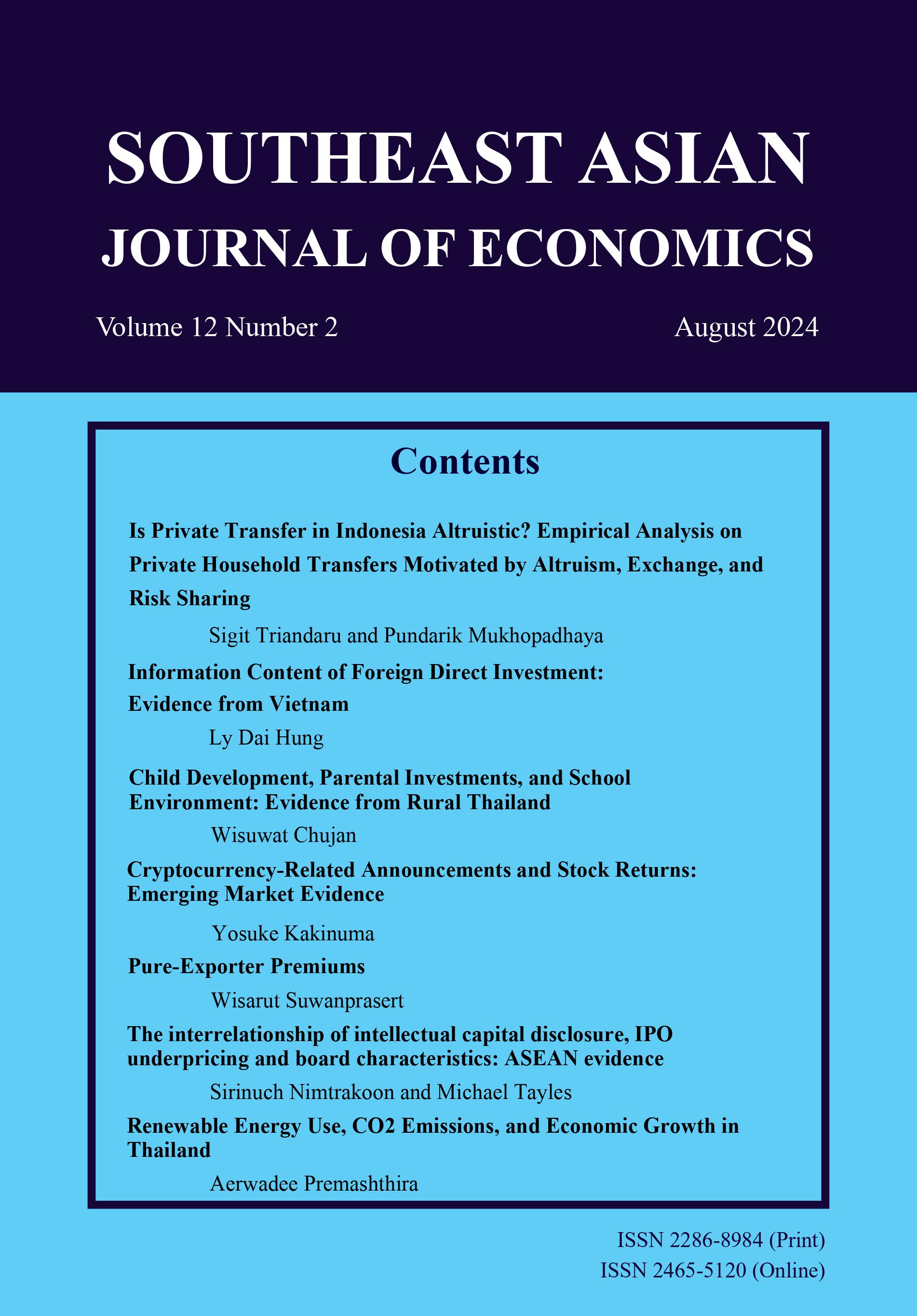Child Development, Parental Investments, and School Environment: Evidence from Rural Thailand
Keywords:
child development, cognitive, noncognitive, motor, cross-lagged, time investment, material investment, school environment, curriculum interventionAbstract
This study investigates how child skills, parental investments, and the school environment influence early childhood development in the context of rural Thailand. Using data from the Reducing Inequality through Early Childhood Education (RIECE) program, our findings suggest that a child’s lagged cognitive ability leads to improved language (expressive and receptive) and gross motor skills. Relating to parental investments, time investment is important for fine motor skills, receptive language, and personal-social skills. In contrast, material investment is only significantly linked to improvements in expressive language. Schooling intervention through the RIECE curriculum improved gross motor skills as well as expressive and receptive language skills. Finally, teacher experience led to better fine motor skills, while a higher studentteacher ratio improved expressive language skills. Our findings are heterogeneous across child genders.
Downloads
Published
How to Cite
Issue
Section
Categories
License
Copyright (c) 2024 SOUTHEAST ASIAN JOURNAL OF ECONOMICS

This work is licensed under a Creative Commons Attribution-NonCommercial-NoDerivatives 4.0 International License.
The submission of a manuscript implies that the paper is an original work and has not been published elsewhere. The author(s) authorize the journal to reproduce or distribute the paper in printed or other electronic forms.







